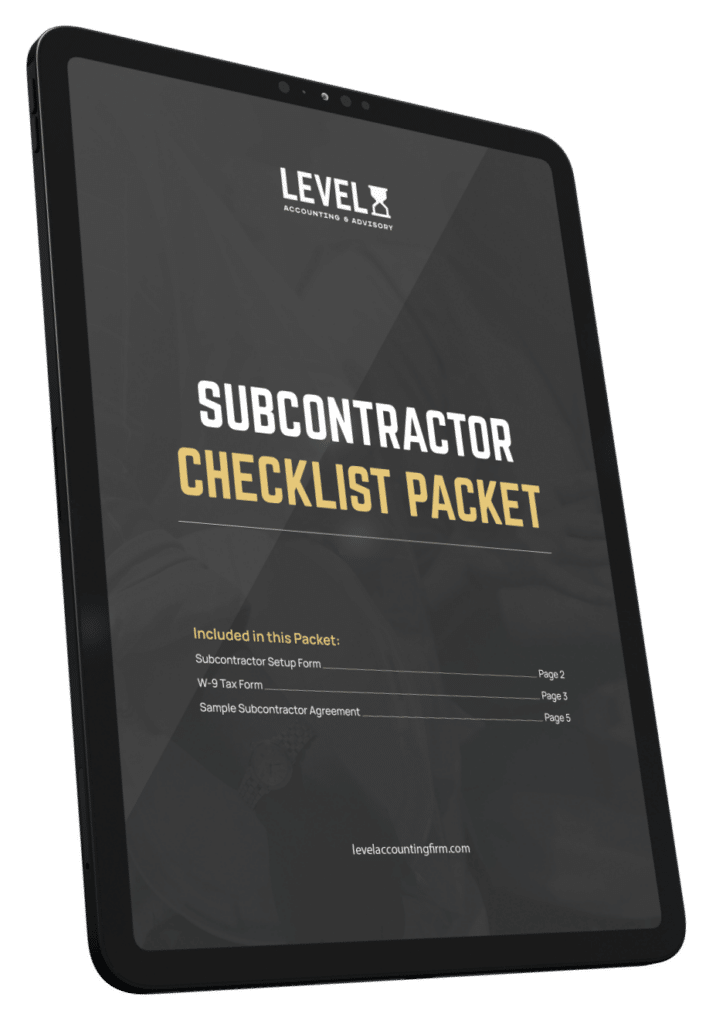In the highly competitive world of the construction industry, maintaining a solid financial footing is crucial for your company’s success. As a construction business owner or manager, you understand that the industry’s unique characteristics require a specialized approach to bookkeeping. With multiple ongoing projects, fluctuating timelines, a diverse workforce, and countless subcontractors, construction bookkeeping can quickly become a daunting task.
This comprehensive guide is designed to help you navigate the complexities of bookkeeping in the construction industry. At the conclusion of this guide, you will be prepared to manage the financial issues that construction companies experience.
Whether you are experienced in the construction industry or starting out for the first time, this guide has something for you.
Understanding Construction Bookkeeping Basics
While there are common traits between bookkeeping for construction companies and other industries, certain differences set them apart.
One key difference is the need for detailed job costing, as construction projects often involve multiple contracts, subcontractors, and materials. Additionally, the financial reports that construction companies rely on to measure their performance differ slightly.
Key reports include:
- Profit and loss statement: This report highlights the company’s revenues, costs, and expenses, showing the net profit or loss over a specific period.
- Balance sheet: This snapshot of a company’s financial position lists assets, liabilities, and equity at a given point in time.
- Cash flow statement: This report displays the cash inflows and outflows, enabling construction companies to track their liquidity and plan for future expenses.
- Job cost reports: These project-specific reports provide insights into the profitability of individual jobs and help construction companies make informed decisions about future projects.
Essential Bookkeeping Practices for Construction Companies
To maintain accurate and efficient financial records, construction companies should follow these essential bookkeeping practices:
Accurate Job Costing
Job costing is the process of allocating costs to specific projects. Doing so ensures that each job’s profitability is accurately tracked.
In general, the job costing process involves:
- Tracking direct costs, such as labor, materials, and subcontractor expenses, which can be easily attributed to specific projects.
- Monitoring indirect costs, such as insurance, permits, and equipment rental, which may be spread across multiple projects.
- Allocating overhead costs, such as office rent and administrative salaries, proportionally to each job.
Progress Billing and Revenue Recognition
Construction projects are often long-term, which necessitates progress billing – invoicing clients based on the percentage of work completed. Two common methods of revenue recognition in construction are:
- Percentage-of-completion method: Revenues and expenses are recognized in stages as a project progresses toward completion. This method provides a more accurate picture of a company’s financial performance during ongoing projects.
- Completed-contract method: Revenues and expenses are recognized only after the project’s completion. This method is suitable for short-term projects or when the outcome is uncertain.
Subcontractor Payments and Expenses
Any subcontractors involved in a project can rack up costs if payments and expenses are not accurately tracked. Maintain separate accounts for each subcontractor, and pay invoices promptly to maintain a positive relationship and avoid penalties.
Managing Inventory and Equipment Costs
Inventory management is crucial for construction companies to prevent overstocking or running out of materials. Implement a system for tracking inventory levels and reordering supplies as needed. Also account for equipment depreciation and maintenance costs to ensure accurate financial reporting.
Retainage Accounting
Retainage, or retention, is a percentage of the total contract value withheld by the client to ensure project completion. Accurately account for retainage amounts in your financial reports, as this impacts both your cash flow and overall project profitability.
Payroll Management
Construction companies often employ a mix of hourly and salaried workers, making payroll management complex. Classify your employees by compensation structure and track their hours diligently. Make sure that all payments meet prevailing wage and certified payroll requirements to stay compliant with labor regulations.
Implementing an Effective Bookkeeping System
With the right software in place, it’s essential to develop and implement an effective bookkeeping system:
- Develop written policies and procedures: Establish clear guidelines for handling financial transactions, tracking expenses, and managing cash flow. Ensure that your team is aware of and adheres to these policies.
- Regularly review financial reports: Make it a habit to review your financial reports periodically. This practice will enable you to identify trends, address potential issues, and make informed business decisions.
- Implement internal controls: To avoid potential fraud and compliance errors, implement internal controls such as segregation of duties, approval processes, and regular audits.
- Train and support staff: Ensure that your team has the necessary training and resources to handle bookkeeping tasks effectively. Offer ongoing support and invest in professional development opportunities.
Outsourcing Bookkeeping Services for Construction Companies
Embracing the idea of outsourcing bookkeeping services can prove to be an efficient choice for construction companies aiming to optimize their time and resources. By outsourcing, your business can reap numerous advantages such as tapping into a wealth of expert knowledge, streamlining processes for better efficiency, and cutting down on overhead expenses.
When you’re in the process of selecting a bookkeeping service provider, it’s crucial to evaluate a few key factors. First, take into account their expertise and familiarity with the construction industry, as this can make a significant difference in the quality of service they provide. Next, assess their reputation by looking into client testimonials, reviews, or case studies, which can give you insight into their credibility and reliability.
Another vital aspect to consider is their communication style. A seamless partnership with your outsourced bookkeeping team relies on clear, open, and transparent communication. Choose a provider that demonstrates responsiveness and adaptability to your company’s unique needs and preferences.
Once you’ve made your choice, foster a collaborative working relationship with the outsourced team by defining mutual expectations, goals, and objectives. This approach will help align their efforts with your company’s financial targets, ensuring a productive and fruitful partnership.
Ensuring Compliance with Regulations and Taxes
For construction companies, adherence to industry regulations and taxes is vital to sidestep penalties and uphold a favorable reputation. To achieve this, staying well-informed about construction-specific regulations is paramount. As regulations evolve, it’s important to update your financial records accordingly, reflecting any changes that might impact your business.
Handling sales and use taxes requires vigilance in monitoring tax-exempt purchases and precisely applying taxes to invoices. By doing so, your construction company can avoid tax discrepancies and maintain compliance with tax authorities.
Familiarize yourself with contractor tax forms that are relevant to your business, such as Form 1099-NEC for nonemployee compensation and Form W-2 for employee wages. Gaining a thorough understanding of these forms and filing them accurately and timely is essential to stay compliant with tax regulations.
Get Bookkeeping Assistance for Your Construction Company
By implementing bookkeeping best practices, utilizing the right software, and staying compliant with regulations, your construction company can thrive financially. Whether you choose to manage your financials in-house or outsource to a professional team, investing in a robust bookkeeping system will ultimately set your business up for long-term financial health.
At Stratlign, we proudly serve businesses in construction and the trades as financial management partner. As you grow, we’ll provide the accounting and bookkeeping services that you need to manage your revenue and expenses while remaining compliant with all local, state and federal regulations.
To learn more, book a call with us today.


